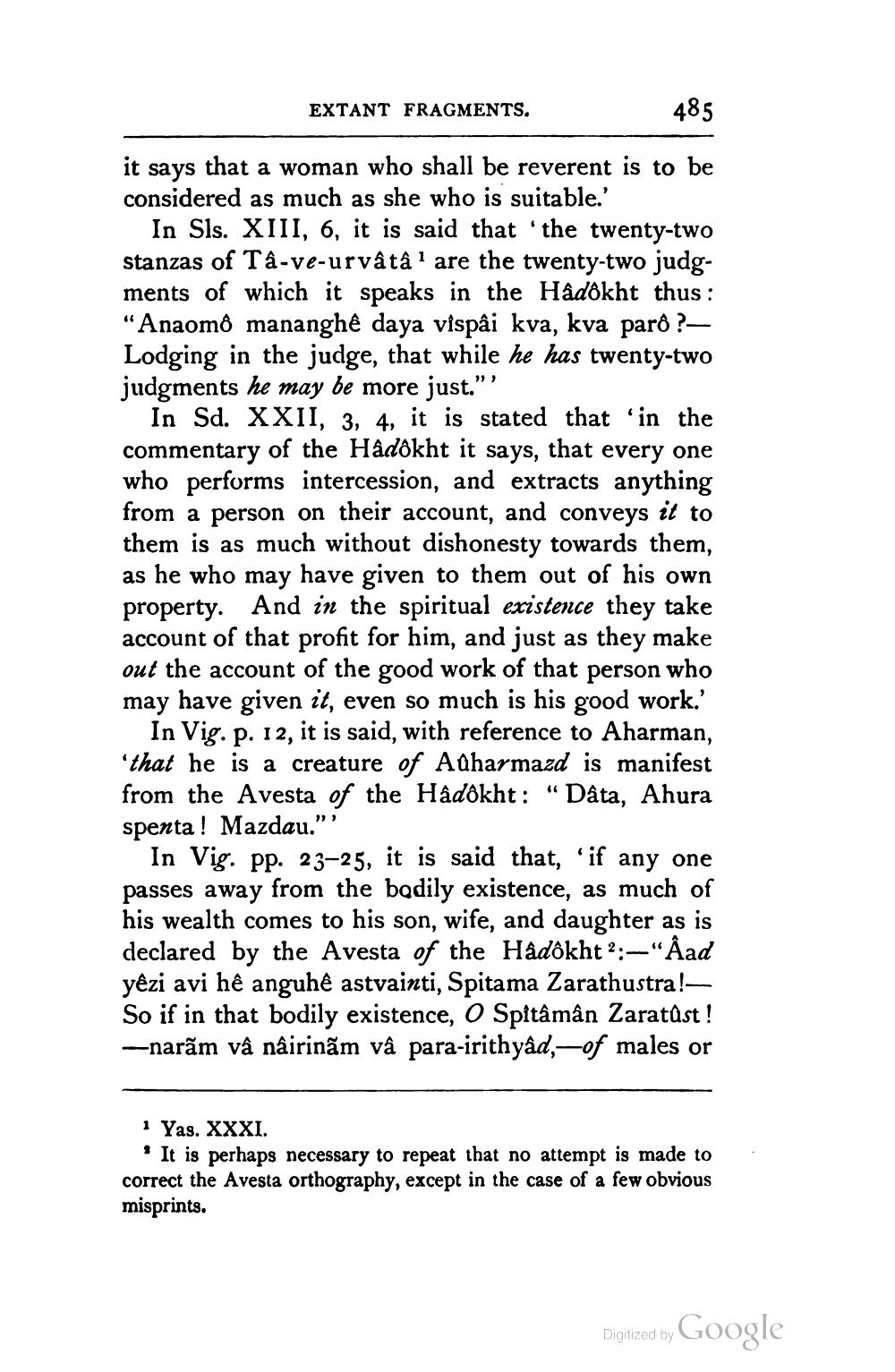________________
485
it says that a woman who shall be reverent is to be considered as much as she who is suitable.'
EXTANT FRAGMENTS.
In Sls. XIII, 6, it is said that the twenty-two stanzas of Tâ-ve-urvâtâ1 are the twenty-two judgments of which it speaks in the Hâdôkht thus: "Anaomo mananghê daya vispâi kva, kva parô ?— Lodging in the judge, that while he has twenty-two judgments he may be more just."'
In Sd. XXII, 3, 4, it is stated that 'in the commentary of the Hâdôkht it says, that every one who performs intercession, and extracts anything from a person on their account, and conveys it to them is as much without dishonesty towards them, as he who may have given to them out of his own property. And in the spiritual existence they take account of that profit for him, and just as they make out the account of the good work of that person who may have given it, even so much is his good work.'
In Vig. p. 12, it is said, with reference to Aharman, 'that he is a creature of Aûharmazd is manifest from the Avesta of the Hâdôkht: "Dâta, Ahura spenta! Mazdau.'
"" "
In Vig. pp. 23-25, it is said that, if any one passes away from the bodily existence, as much of his wealth comes to his son, wife, and daughter as is declared by the Avesta of the Hâdôkht 2:-"Âad yêzi avi hê anguhê astvainti, Spitama Zarathustra!— So if in that bodily existence, O Spîtâmân Zaratust! —narãm vâ nâirinam vâ para-irithyâd,-of males or
1 Yas. XXXI.
It is perhaps necessary to repeat that no attempt is made to correct the Avesta orthography, except in the case of a few obvious misprints.
Digitized by
Google




